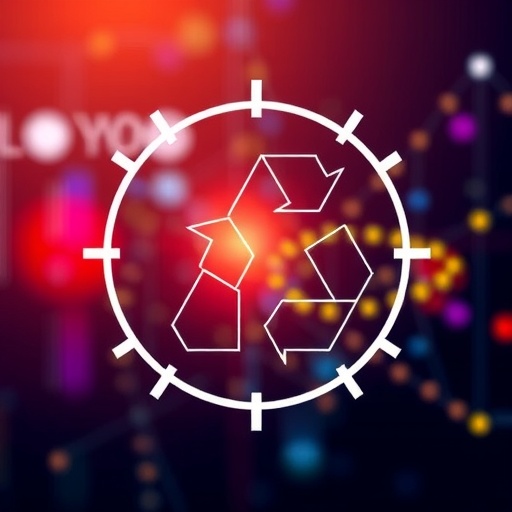We are excited to share the remarkable news that our distinguished academic journal, Circular Economy, has officially secured its place in the Emerging Sources Citation Index (ESCI), as recognized by Web of Science, one of the foremost global providers of scholarly and scientific research information. This significant milestone signifies that all articles published in Circular Economy will be included in ESCI, thereby enhancing its visibility and academic impact. The journal, which has been an academic beacon since its inception in 2022, is poised to receive its first impact factor in the year 2026, marking a new chapter in its journey toward academic excellence.
In its short history, Circular Economy has developed into a vital platform for disseminating pioneering research and insights on innovative techniques, systematic analyses, and effective policy tools for waste management. The journal aims to address critical waste disposal issues and promote sustainable practices that emphasize the principles of reduce, reuse, and recycle across various contexts—from global strategies down to local practices and industrial parks. By prioritizing sustainability, Circular Economy champions the cause of environmental conservation, driving forward the dialogue around effective waste management systems.
Launched in September 2022, Circular Economy has rapidly expanded its reach and influence. It is not just a publication; it is a forum for researchers and practitioners worldwide to share their findings and contribute to the growing body of knowledge in the field of sustainability and waste management. With a quarterly publication schedule, the journal has successfully produced four volumes comprising 13 issues and boasts an impressive total of 84 papers authored by researchers from 35 different countries. This diverse geographical representation underscores the global relevance of the challenges it addresses and the collaborative spirit that drives the academic community towards innovative solutions.
The journal has garnered substantial attention within the scholarly community, as evidenced by the impressive citation statistics it has achieved within just three years of being indexed by prominent databases like ESCI, Scopus, and Ei Compendex. Collectively, the published papers have received a total of 1,546 citations, indicating a robust engagement from the academic community. These works have not only attracted readers from a wide array of disciplines but have also been referenced by 148 scholarly journals, including some of the top-tier publications in the sustainability sector, such as the Journal of Cleaner Production and Resources Conservation and Recycling.
One particularly notable contribution that emerged from the journal is an article on e-waste recycling, which has attracted an extraordinary 246 citations. Authored by research teams from Tsinghua University and The Hong Kong Polytechnic University, this work has resonated deeply within the academic community for its timely and critical examination of electronic waste—a pressing issue in today’s increasingly digital and disposable society. The article’s impact underscores the journal’s capability to attract high-quality research that addresses pressing global challenges.
As the journal continues to evolve, it remains dedicated to publishing high-quality research that adheres to rigorous peer-review standards. The diligence in maintaining high academic quality is complemented by a commitment to rapid publication, ensuring that groundbreaking research reaches the public and academic spheres without unnecessary delay. This principle not only benefits authors by expediting the dissemination of their work but also enriches the global discourse on sustainability and circular economy practices.
Moreover, the journal’s indexing in ESCI, Scopus, and Ei Compendex demonstrates its commitment to ensuring widespread visibility for research published within its pages. By providing authors with an influential platform for their findings, Circular Economy enhances the global dissemination of valuable knowledge, ensuring that impactful research can influence practices and policies across various sectors worldwide. This vital accessibility is essential for advancing the collective understanding of waste management and sustainability.
The journal’s impressive CiteScore of 10.0, anticipated for release in June 2025, reflects its growing reputation in the academic landscape. Ranking 27th within the top 10% in the Environmental Science (miscellaneous) category, this score highlights the significant impact of the research being published. This level of recognition is crucial for scholars looking to contribute meaningful research to the ongoing conversations around environmental sustainability and circular economy practices.
The landscape of scientific research is evolving rapidly, and Circular Economy is at the forefront of this transformation. By focusing on innovative methodologies and critical analyses, the journal places itself as a nexus for scholarly dialogue surrounding effective waste management systems. As it continues to carve out its space within the academic community, the journal invites researchers from all disciplines to contribute their insights, ensuring that it remains a vital part of the evolving discussions on sustainability.
In conclusion, the journey of Circular Economy is just beginning, and with its inclusion in the Emerging Sources Citation Index, the journal is poised for remarkable growth. Its commitment to publishing high-quality research, fostering global collaboration, and disseminating knowledge effectively positions it as a key player in driving sustainable practices and shaping future discourse in the realm of waste management and circular economies. As the journal looks toward the future, it remains eager to welcome new contributions that challenge traditional approaches and explore innovative solutions for a more sustainable world.
Subject of Research: Sustainable waste management and circular economy practices
Article Title: Circular Economy: Advancing Sustainable Practices through Global Collaboration
News Publication Date: October 2023
Web References: N/A
References: N/A
Image Credits: N/A
Keywords
Circular Economy, Waste Management, Sustainability, Environmental Science, Peer Review, Innovation, ESCI, Research Impact, Global Collaboration, E-Waste Recycling, Policy Tools.




